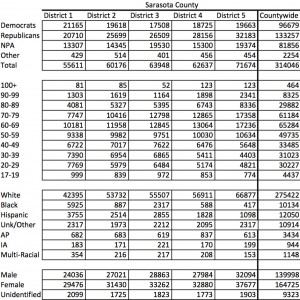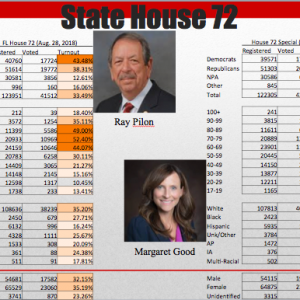Governments Need PIOs, Not Publicists
Under The Hood
SRQ DAILY
SATURDAY OCT 14, 2017 |
BY JACOB OGLES
Comments at the bottom of news stories become such breeding grounds for vitriol they’re often best ignored, but the realization a public relations firm was discreetly weighing in on community conversation on behalf of a local school district on a newspaper message section earned plenty of attention this week. ThreeSixOh PR, a company run by prominent public relations specialist Candice McElyea, abruptly parted ways with the Sarasota County School District after a local news outlet learned comments on its website had been posted under several names using the same IP address—one traced back to McElyea's firm. The revelation resulted in a subsequent cold war between the newspaper and the firm, and McElyea noted in a recent ThreeSixOh blog post plenty of suspect users write online comments all the time. “We wonder why we are specifically being targeted,” she wrote.
This affair generated a wider discussion on whether it’s appropriate for PR firms or their employees to post on news and review sites to prop up clients; it’s a practice many label unethical, but one everyone acknowledges happens.
But arguing about that specific practice ignores the heart of the issue—the difference between public relations and public information. None of this would be newsworthy had McElyea’s work been for a local business. The issue came from spending taxpayer dollars to prop up a government’s image. We should ask why the district needed a PR firm in the first place.
The district recently hired ThreeSixOh, promising $225,000 over two years to take over certain public communications tasks. That sounds like a lot, but it’s worth noting the district’s internal Communications and Community Relations department for this fiscal year budgeted 9.2 full-time positions at a much greater expense of almost $872,000, and the hiring of an outside firm served as an attempt to reduce the budget. There’s debate to be had on whether this service should remain in-house, but efforts toward fiscal streamlining while still providing a consistent stream of information should be applauded. Regardless, the job should entail transmitting information, not shaping opinion.
If a private business wants to spend hundreds of thousands improving its image, hey, it’s their money. But the district works with taxpayer dollars. School district officials work for and report to the public. Anyone handling communications for a government agency properly serves as a conduit between citizens and stewards of community resources, not as a publicist.
That’s what makes the nature of the recent actions troubling. Consider this from McElyea in the ThreeSixOh blog post addressing this scandal: “As most public relations firms do, we have a team of social influencers and bloggers who we work with on a regular basis to monitor online comments and post as they see fit to support our clients.”
In other words, if people talk smack about the district, the team at ThreeSixOh felt obligated to turn conversation another direction.
Look, if a pizzeria hires a PR firm to convince the public it serves the best deep dish in town, a PR flack may feel justified fluffing up the restaurant’s online profile with phony Yelp reviews. But a public school district should not pay somebody to do the same.
And governments deal with different types of public controversies. How would someone feel if a public information officer jumped on message boards to defend an officer accused of brutality? Or a public works official caught fixing bids? Or a teacher suspected of abusing a child? When such matters arise, we need one thing from public information officials: transparency. They shouldn’t try to shape perception, just provide as much information as is legally allowed and appropriate. And we need to trust they will do this.
Outside moments of crises, public information officials should engage the public on a variety of processes and keep citizens informed on the mundane but still important tasks done day-to-day. And especially for schools, there’s a public education element to the job. But there’s no need to argue with critiques nor to defend officials tasked with conducting the public good.
Jacob Ogles is contributing senior editor to SRQ Media Group.
« View The Saturday Oct 14, 2017 SRQ Daily Edition
« Back To SRQ Daily Archive









